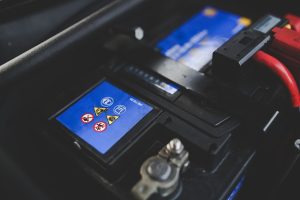
Have you heard of electrical contact cleaners? Electrical connectivity issues can often be traced back to a broken circuit. Circuits are pathways for electricity. They are found in automobiles, airplanes, homes, buildings and various devices. If electricity can no longer traverse the pathway, the circuit is said to be broken. Using an electrical contact cleaner, however, you can keep these pathways open and prevent connectivity issues from occurring.
What Are Electrical Contact Cleaners
Also known simply as contact cleaners, electrical contact cleaners are products designed to clean contaminants off electrical components.
When left unchecked, contaminants may interfere with the flow of electricity. Contaminants can build up on electrical components in a circuit to the point where they obstruct electricity. A simple solution is to use an electrical contact cleaner. Electrical contact cleaners are designed to dissolve and clean contaminants so that electricity can flow as intended.
Electrical contact cleaners can be used on a variety of electrical components, including the following:
- Connectors
- Switches
- Fuses
- Batteries and battery terminals
- Circuit boards
- Instruments
- Sensors
The Science Behind Electrical Contact Cleaners
You might be wondering how electrical contact cleaners work. While available in different types, most electrical contact cleaners contain isopropyl alcohol.
Isopropyl alcohol is a colorless, flammable compound. It’s most associated with rubbing alcohol. In addition to being a powerful sanitizing agent, though, isopropyl alcohol can safely and effectively clean electrical components. It will dissolve dirt, dust and grime.
Why can’t you use water and soap to clean electrical components exactly? Water and electronics don’t mix. Using soapy water to clean electrical components will likely leave behind a residue. Furthermore, water takes a long time to evaporate. Alcohol-based electrical contact cleaners offer a safer and more effective cleaning solution. They will dissolve any contaminants while also quickly evaporating.
What to Look for When Choosing an Electrical Contact Cleaner
There are several things you should look for when choosing an electrical contact cleaner, such as an aerosol design. With an aerosol design, you can spray it directly on your electrical components. Aerosol electrical contact cleaners come in a spray bottle that simplifies the application process.
You should also choose an electrical contact cleaner that’s residue-free and fast-drying. Residue-free contact cleaners are designed to dissolve contaminants without leaving behind powdery residue that could otherwise interfere with the flow of electricity. Fast-drying, of course, means the electrical contact cleaner will quickly evaporate after performing this dissolving action.



